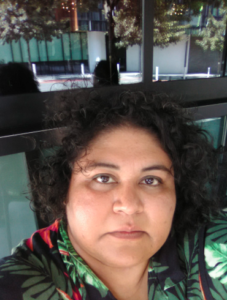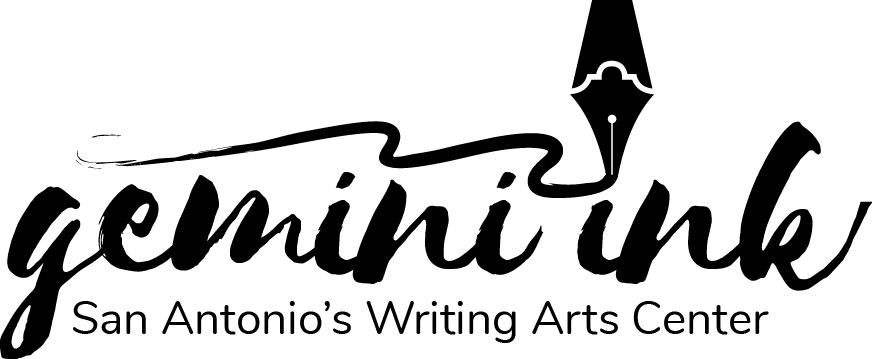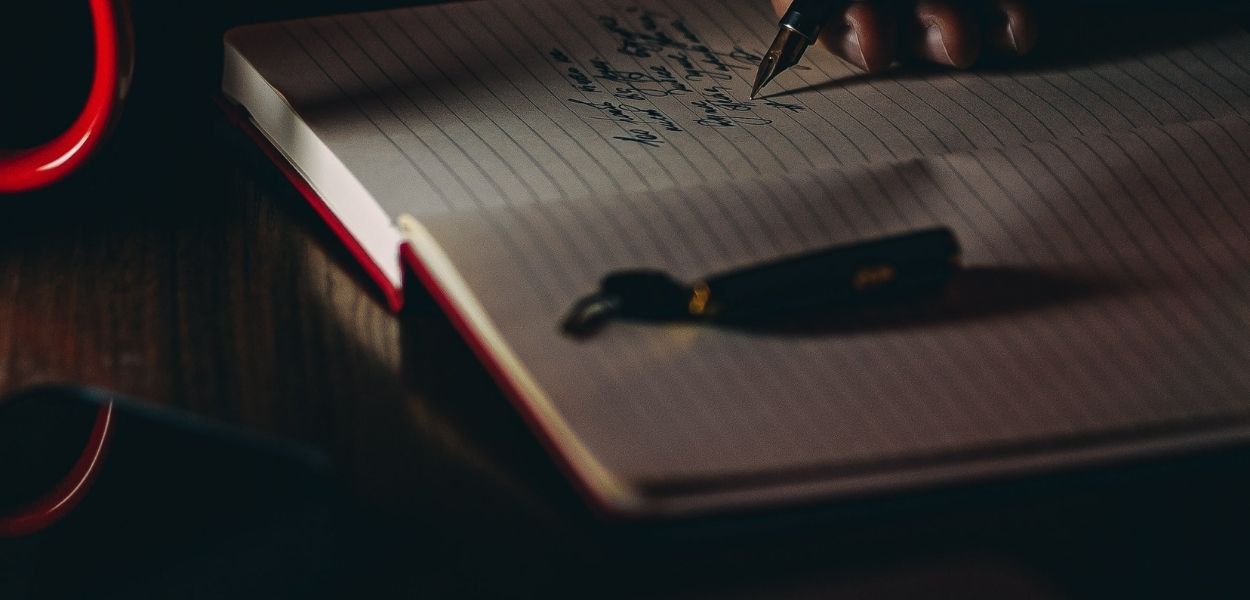The Writer’s Desk features the desks and writing practices of Gemini Ink faculty, visiting authors, teaching artists, volunteers, students, interns, staff, partners and more. Receive new posts in your inbox by subscribing to our newsletter at bit.ly/geminiinknewsletter.
Join ire’ne lara silva on Saturdays, March 2, 9, 16, & 23, 2024, 10am-12pm CST, in-person at Gemini Ink for her class Loss, Memory, and Mortality: A Mixed Genre Workshop. In this four-week workshop, we will read and discuss grief-focused poetry, fiction, and nonfiction written by ire’ne lara silva.
Hello ire’ne, it’s great to chat with you about your writing habits! We’re curious, can you tell us a bit about your very first writing desk? How does it differ from the one you use now?
I’m pretty sure my first writing desk was the floor. I was about 8 years old. For many stretches of my childhood, I slept on the floor. I remember many hours of staying up late and writing in notebooks and then stuffing the notebook and my pens under my bedding.
How has your preferred place to write changed over the years?
I’ve written everywhere and on everything. From big heavy used office desks to tray tables to library desks to café tables to picnic tables to beds to sofas. I’ve written in restrooms, in trees, in fields, in grocery store and pharmacy counter lines. I seem to have converted my home to multiple places to write—everything but the kitchen and the restroom are working spaces. I still love outdoor spaces and quiet spaces, but I don’t have one preferred place.
Do you have any habits or routines that you follow before writing?
Absolutely not.
I feel like habits and routines steal my freedom. I want my writing to be driven by desire, by curiosity, by surprise. I also don’t impose any expectations on whatever I write—no outlines, no word counts, no anticipated outcomes. I sometimes have to work with deadlines—but even then, research can be a pleasurable and unpredictable thing.
How important is it to you to have stability in your writing routine?
I am absolutely against stability in a writing routine. That puts writing in control of time, the world, and other people. The time of day or place should mean nothing. I want to be able to write in hotels, on planes, on trains, at home, in cafes, in strange cities, on my laptop, on my phone, on paper, on napkins, alone, with people, while eating lunch, at dawn, after midnight, in whatever mood, in comfort or discomfort.
What is the one piece of writing advice that you value most?
I went to my first writing workshop in San Antonio in 1998. I didn’t know the writer who was leading it—Cecile Piñeda—but came to immensely respect her work and her opinion. My short story was the last to be reviewed. I remember the other workshop participants absolutely hated the story, the story’s narrator, the story’s structure, and the story’s language. Piñeda waited to speak till last and handed me a full page of hand-written notes. At the very top, she’d written MAKE IT STRANGE in one inch tall uppercase letters. And when she spoke—it seemed as if she’d understood everything I was trying to do. She praised the unusual structure and the unreliable narrator. More importantly, she pushed me to write the story I needed to write the way I needed to write it.
Is there anything that you’ve been listening to lately—an interesting podcast, a song list, or album?
I listen to music all the time—when I’m writing, when I’m working, when I’m driving. I rarely listen to music in English unless I can’t find anything else. Lately, the music I’m caught most by: Cristian Nodal, Majo Aguilar, Carin Leon, Grupo Frontera, Santa Fe Klan, and Karol G.
What theme or symbol often emerges in your work? Why are you drawn to this theme/symbol?
Grief. I didn’t know when I first started publishing that this was going to come around again and again. Not just grief over lost loved ones, but grief over history and the consequences of history, grief over individual and communal health issues, grief over identities and cultures, grief over lost loves, grief over lost selves, grief over and over again.
What is your next project?
I have a bunch of them! A new poetry collection in January 2024, the eaters of flowers, and my first comic book, Vendaval, in April 2024. I have a new short story collection and a children’s book I’m looking to publish. Next, I’ll be working on two novels in progress and editing a collection of Chicane prose for New Mexico University Press.
If people want to learn more about your work, where should they go?
To my website: www.irenelarasilva.wordpress.com

ire’ne lara silva, the 2023 Texas State Poet Laureate, is the author of four poetry collections, furia, Blood Sugar Canto, CUICACALLI/House of Song, and FirstPoems, two chapbooks, Enduring Azucares and Hibiscus Tacos, and a short story collection, flesh to bone, which won the Premio Aztlán. ire’ne is the recipient of a 2021 Tasajillo Writers Grant, a 2017 NALAC Fund for the Arts Grant, the final Alfredo Cisneros del Moral Award, and was the Fiction Finalist for AROHO’s 2013 Gift of Freedom Award. Most recently, ire’ne was awarded the 2021 Texas Institute of Letters Shrake Award for Best Short Nonfiction. ire’ne is currently a Writer at Large for Texas Highways Magazine and is working on a second collection of short stories titled, the light of your body. A new poetry collection, the eaters of flowers, is forthcoming from Saddle Road Press in January 2024.



